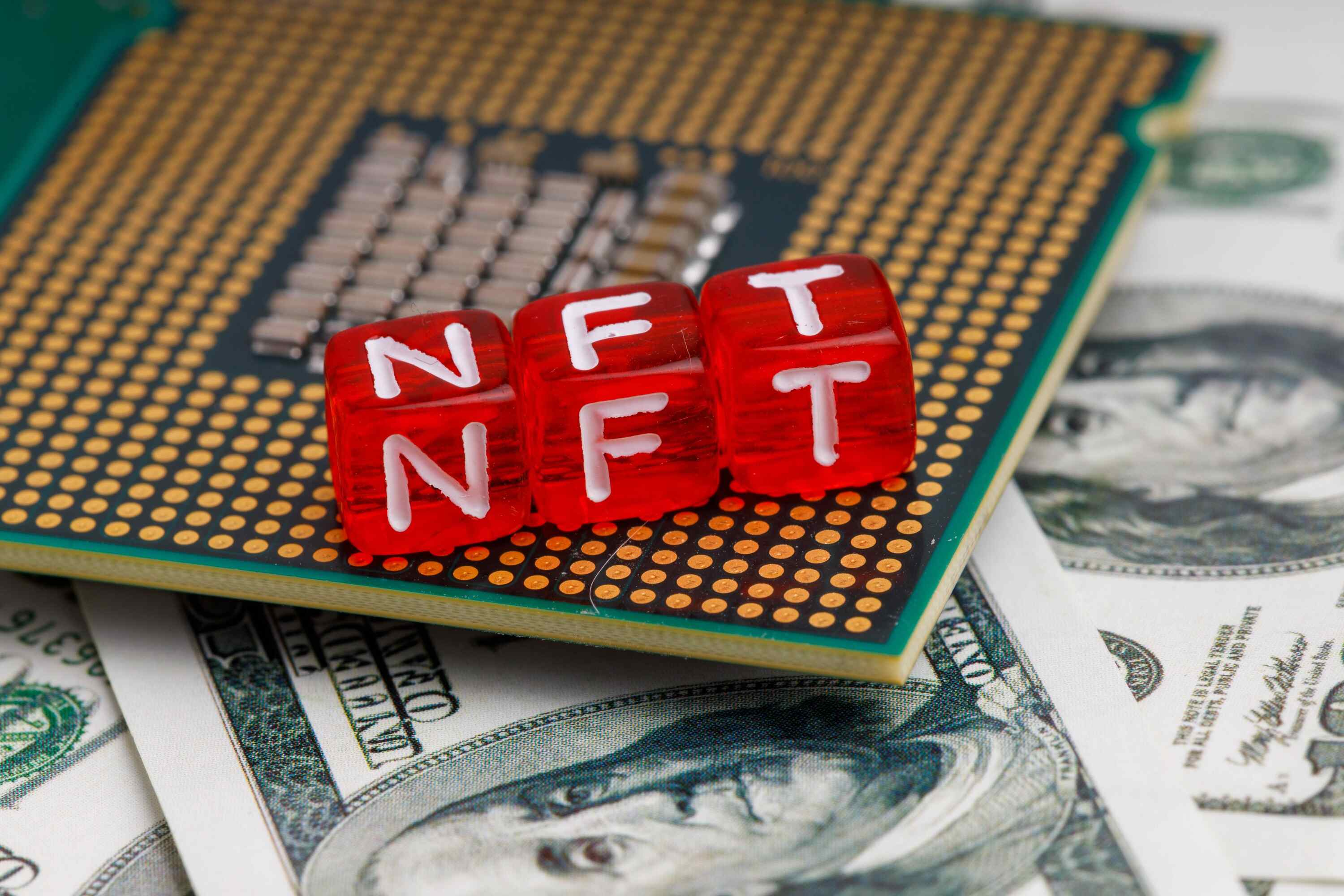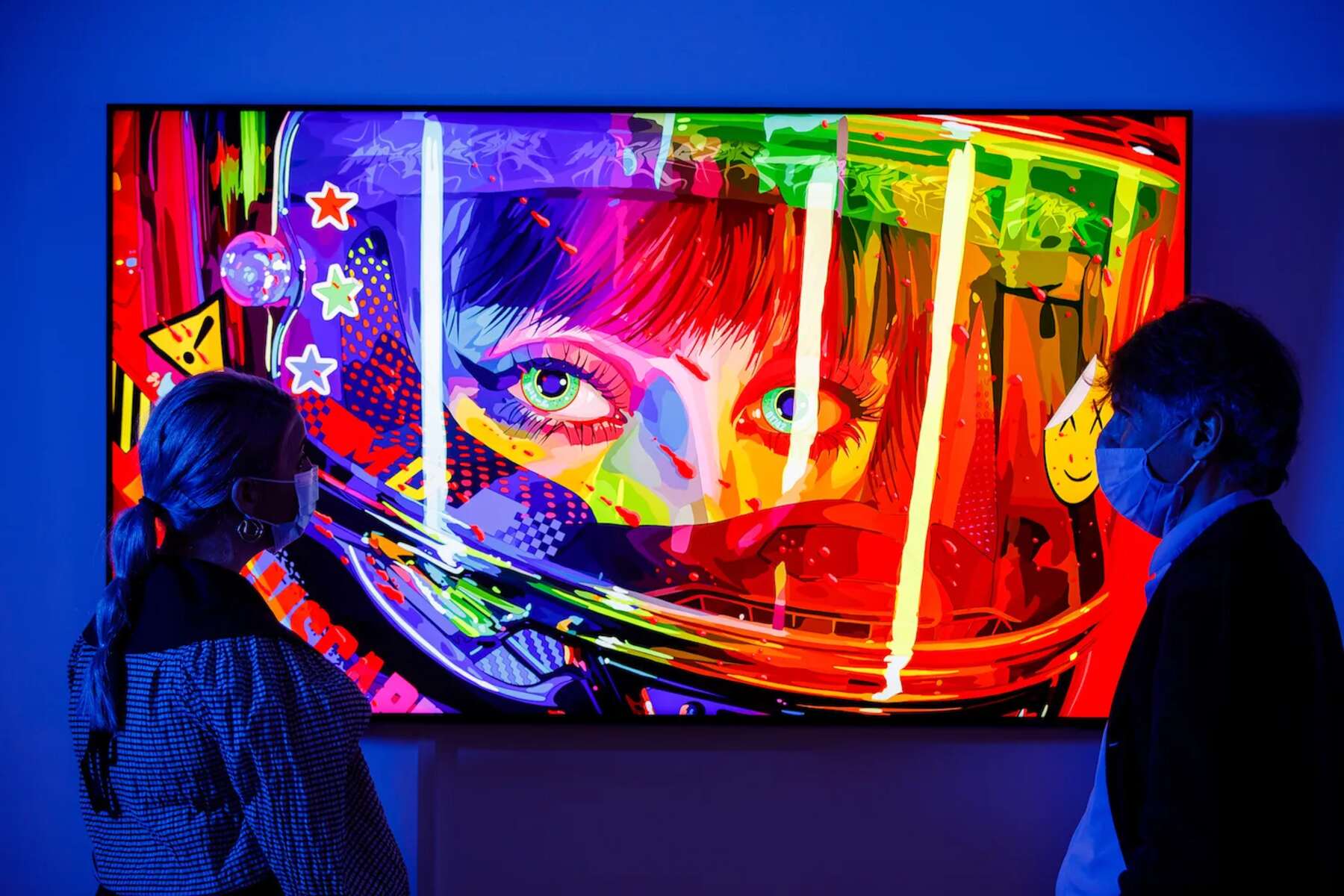Introduction
Welcome to the world of non-fungible tokens (NFTs), a digital craze that has taken the art and collectibles market by storm. As more and more people dive into the NFT space, it’s important to familiarize yourself with the language and concepts surrounding it. One such term you may come across is “doxxed.”
Doxxed, in the context of NFTs, refers to the act of revealing someone’s personal information publicly. This can include their real name, address, phone number, or any other identifying details. While the concept of doxxing is not exclusive to the NFT community, it poses unique risks and challenges for artists and collectors in this digital realm.
With the increasing popularity of NFTs, it’s crucial to understand the implications and consequences of being doxxed. This article aims to shed light on what it means to be doxxed, the risks associated with it in the NFT community, and how you can safeguard yourself from potential doxxing incidents.
Whether you’re an artist looking to sell your digital creations or an avid collector exploring this exciting new market, understanding the concept of doxxing is essential to protect your online presence and maintain your privacy.
Definition of Doxxed
Doxxed is a term derived from the word “docs” or “documents,” and it refers to the act of publicly revealing someone’s personal information without their consent. In the NFT community, being doxxed typically means that your true identity, such as your real name, address, and contact details, becomes known to the public.
Doxxing can occur through various means, including hacking into databases, obtaining information from social media platforms, or even through malicious actions by individuals looking to harm or harass others. Once doxxed, your personal information becomes accessible to anyone, potentially leading to unwarranted attention, targeted harassment, and even identity theft.
Being doxxed can be a significant invasion of privacy, as it exposes your offline identity to a vast online audience. In the world of NFTs, where artists and collectors often operate under pseudonyms or screen names, being doxxed can have severe repercussions for individuals who prefer to maintain their anonymity.
It is important to note that not all instances of revealing personal information fall under the category of doxxing. In some cases, individuals may willingly share their personal details publicly. However, when personal information is exposed without consent and with the intent to harm or harass, it crosses into the realm of doxxing.
Now that we understand what it means to be doxxed, let’s explore how this phenomenon specifically affects the NFT community and the risks associated with it.
Doxxed in the NFT Community
The NFT community, comprised of artists, collectors, and enthusiasts, operates largely in the digital realm. Many participants in the NFT space choose to use pseudonyms or screen names to protect their privacy and maintain a level of anonymity. This anonymity allows individuals to freely express themselves and engage in the NFT market without fear of personal identification.
However, the rise of doxxing poses a significant challenge for those within the NFT community. With the increasing popularity and mainstream attention that NFTs have garnered, individuals may become targets for doxxing attempts.
One of the main reasons individuals within the NFT community are doxxed is due to the potential monetary value associated with successful NFT projects. High-profile artists, collectors, and investors who have achieved significant success in the NFT space might attract the attention of malicious individuals seeking to exploit their personal information for financial gain or to undermine their online presence.
Additionally, the borderless nature of the internet means that anyone with an internet connection can participate in the NFT market. This global accessibility, while a tremendous advantage, also opens doors for individuals with malicious intent to infiltrate and target members of the NFT community.
The impact of being doxxed in the NFT community reaches beyond personal privacy concerns. It can lead to unwanted attention, harassment, and even offline consequences. Artists, particularly those who prefer to maintain anonymity, may face challenges in marketing their creations or building a reputable brand if their true identity becomes public knowledge.
Similarly, collectors who are doxxed may find themselves subjected to targeted harassment or attempts to steal their valuable NFT assets. The possibility of having personal information exposed creates an environment of vulnerability and potential exploitation.
Overall, being doxxed poses significant risks and challenges for individuals in the NFT community. With the potential for financial gain and the desire to harm or undermine others, it’s crucial to understand the precautions and measures one can take to protect oneself from doxxing incidents. We’ll explore some strategies for safeguarding your online presence in the next section.
Risks of Being Doxxed in NFT
Being doxxed in the NFT community can have far-reaching consequences and expose individuals to a wide range of risks. Understanding these risks is crucial for maintaining your online security and protecting your personal and financial well-being.
One of the primary risks of being doxxed is the potential for targeted harassment and cyberbullying. Once your personal information becomes public, individuals with malicious intent may use this information to harass, threaten, or intimidate you. This can include sending abusive messages, spreading false rumors, or even attempting to blackmail you.
Moreover, being doxxed can lead to offline repercussions, such as physical stalking or unwanted visits to your home or workplace. With personal information readily available, individuals with ill intentions can invade your privacy and pose a threat to your safety.
Financial implications are another significant concern when it comes to doxxing in the NFT community. If your true identity is revealed, it becomes easier for malicious individuals to target your digital assets and attempt to steal or compromise them. This can result in financial loss and potentially ruin your reputation within the NFT space.
Furthermore, being doxxed may jeopardize your professional and personal relationships. If your true identity is exposed, it can have consequences in your career or personal life, especially if you wished to keep your involvement in the NFT community separate from your offline identity.
Lastly, being doxxed can create a sense of vulnerability and anxiety, leading to a loss of trust in the NFT community. Artists and collectors may hesitate to engage openly, share their work, or interact with others for fear of further exposure or exploitation.
These risks highlight the importance of proactive measures to safeguard your online presence and protect yourself from potential doxxing incidents. In the next section, we will explore strategies and tips to help you minimize these risks and maintain your privacy in the NFT community.
How to Protect Yourself from Being Doxxed in NFT
While the risks of being doxxed in the NFT community are concerning, there are proactive steps you can take to minimize the likelihood of falling victim to such incidents. By implementing these strategies, you can protect your personal information and maintain your privacy while engaging in the exciting world of NFTs.
1. Use a Pseudonym or Screen Name: Consider using a pseudonym or screen name instead of your real name when participating in the NFT community. This provides an additional layer of anonymity and makes it more challenging for malicious individuals to connect your online presence with your offline identity.
2. Separate Personal and Professional Identities: Create distinct online personas for your personal and professional life. Keep your NFT activities separate from your personal social media accounts and use different email addresses for each. This way, even if one identity is compromised, the other remains protected.
3. Be Mindful of What You Share: Exercise caution about the information you share online. Avoid disclosing personal details, such as your address or phone number, in public forums or social media platforms. Be mindful of the information you provide when interacting with others, especially if you do not know them well.
4. Strengthen Your Cybersecurity: Take steps to enhance your online security. Use strong, unique passwords for your accounts, enable two-factor authentication, and regularly update your antivirus software. Consider using a virtual private network (VPN) to encrypt your internet connection and protect your digital footprint.
5. Monitor Your Online Presence: Regularly monitor your online presence and conduct a search for your name or pseudonym to identify any potential instances of doxxing. Set up alerts for your name or associated keywords using search engines or specialized monitoring services.
6. Limit Personal Information in Artwork: If you are an artist, be cautious about including personal information, such as signatures or embedded metadata, in your artwork. Scrub metadata or remove any identifying information that could be used to link the artwork back to you.
7. Set Privacy Settings: Review and adjust the privacy settings on your social media accounts to restrict access to your personal information. Be mindful of the permissions you grant to third-party applications or services related to NFTs.
Remember, while these strategies can help mitigate the risks of being doxxed, it’s important to stay vigilant and continually adapt to new threats. Being proactive and mindful of your online presence will go a long way in protecting yourself from potential doxxing incidents in the NFT community.
Famous NFT Doxxing Incidents
Over the years, there have been several high-profile cases of doxxing in the NFT community that have garnered attention and highlighted the importance of online security and privacy. These incidents serve as valuable reminders of the potential risks involved in participating in the NFT space.
One notable NFT doxxing incident involved an artist who gained significant popularity for their digital artworks. The artist operated under a pseudonym and preferred to maintain their anonymity. However, their true identity was eventually revealed by a determined individual who aimed to undermine the artist’s credibility and reputation. The doxxing incident led to harassment and threats, forcing the artist to temporarily withdraw from the NFT community and reevaluate their online presence.
Another well-known doxxing incident involved a prominent collector who had accumulated a substantial portfolio of valuable NFTs. Their personal information was maliciously exposed, leading to targeted harassment and attempted breaches of their digital assets. The collector had to take immediate action to secure their accounts, change their online presence, and reinforce their cybersecurity measures to regain control and protect their investments.
These incidents emphasize the importance of maintaining a strong online security posture and being cautious about the information shared within the NFT community. Whether you are an artist, collector, or enthusiast, understanding the risks and taking proactive steps to safeguard your personal information can help prevent becoming a victim of doxxing.
While these incidents may be disheartening, they also shed light on the resilience and support within the NFT community. Fellow artists, collectors, and enthusiasts rallied behind the affected individuals, providing emotional support, and raising awareness about the importance of online privacy and security.
By learning from these incidents, the NFT community continues to evolve and develop strategies to protect its members. Online platforms and marketplaces have implemented improved security measures and policies to prevent doxxing and promote a safe environment for artists and collectors to thrive.
Ultimately, these famous doxxing incidents serve as cautionary tales, reminding us of the inherent risks of operating in the digital realm. It is crucial for individuals in the NFT community to remain vigilant, stay informed about best practices for online security, and take necessary precautions to protect their privacy and personal information.
Conclusion
The concept of being doxxed in the NFT community poses significant risks and challenges for artists, collectors, and enthusiasts. The act of publicly revealing someone’s personal information without their consent can lead to targeted harassment, financial loss, and a loss of trust within the community.
Understanding the definition of doxxing, the specific risks it presents in the NFT space, and the measures to protect yourself is crucial for maintaining online security and privacy. Using pseudonyms, separating personal and professional identities, and being mindful of the information you share are important steps in safeguarding your personal information.
Strengthening your cybersecurity, monitoring your online presence, and setting privacy settings on your social media accounts are proactive measures that can minimize the risk of falling victim to doxxing incidents.
Throughout the NFT community, there have been famous doxxing incidents that have highlighted the significance of online security and the resilience of the community in supporting affected individuals. These incidents serve as reminders to be cautious and take appropriate precautions to protect personal information.
By staying informed, remaining vigilant, and being proactive in protecting your privacy, you can minimize the risks of being doxxed and safely navigate the exciting world of NFTs. As the NFT community continues to grow and evolve, it is paramount to cultivate a supportive and secure environment for artists, collectors, and enthusiasts to thrive.
Remember, your online presence is valuable, and taking steps to protect your personal information can ensure a positive and secure experience within the NFT community.

























